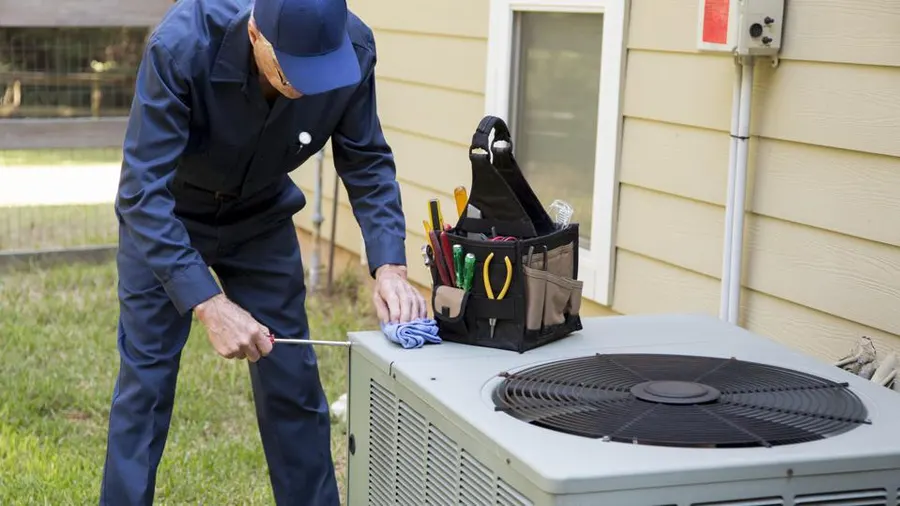An HVAC system is a must-have for any contemporary structure that cares about year-round occupant comfort and air quality. Efficient HVAC services not only perform their main functions well, but they also significantly contribute to lowering operational costs and increasing sustainability. In this comprehensive guide, we delve into the significant cost savings that efficient HVAC systems can offer, maintenance strategies to enhance efficiency and practical tips for optimizing HVAC performance.
Importance Of Efficient HVAC Systems
The capacity of HVAC systems to provide maximum performance with minimum energy consumption is what we mean when we talk about efficiency. This is absolutely critical for the sake of both the environment and the economy. Overly energy-hungry HVAC systems can increase monthly power bills, reduce equipment lifespan, and necessitate more maintenance. On the other hand, investing in and maintaining efficient HVAC systems can result in substantial long-term cost savings.
Ways Efficient HVAC Systems Save Costs
1. Energy Efficiency And Reduced Utility Bills
Efficient HVAC systems are designed to use energy more effectively, resulting in lower utility bills. Modern systems typically have high ratings for energy efficiency, such as Seasonal Energy Efficiency Ratio (SEER) for air conditioners and Annual Fuel Utilization Efficiency (AFUE) for furnaces. Upgrading to these systems can significantly reduce monthly energy expenses, especially in regions with extreme temperatures where HVAC systems operate frequently.
2. Lower Maintenance And Repair Costs
More frequent repairs and fewer failures are signs of an effective HVAC system that has been well-maintained. Regular inspections and timely replacements of filters, belts, and other components contribute to the longevity of HVAC equipment, minimizing the need for costly emergency repairs.
3. Extended Equipment Lifespan
HVAC company Denver is built to endure rigorous usage conditions while maintaining performance. By reducing strain on components and ensuring optimal operation, these systems can have a longer lifespan than their less efficient counterparts. This longevity translates to fewer replacements and lower capital expenditures over time.
4. Improved Indoor Air Quality
Advanced HVAC systems incorporate features like improved filtration, humidity control, and ventilation that enhance indoor air quality. Fewer sick days and more productivity are the results of cleaner air since occupants are less likely to suffer from respiratory ailments and allergies. Moreover, maintaining a healthy indoor environment can lower healthcare costs for building occupants.
5. Enhanced Building Value And Marketability
Buildings equipped with efficient HVAC systems are more attractive to prospective buyers and tenants. Energy-efficient certifications such as ENERGY STAR® ratings or LEED certifications validate a building’s sustainability credentials, potentially commanding higher property values and rental rates in the market.
Maintenance Strategies For Optimizing Efficiency
1. Regular Inspections And Tune-Ups
Schedule professional HVAC inspections at least annually, ideally before peak seasons (summer and winter). Having a professional HVAC specialist inspect your system can help you catch small problems early on and fix them before they become big headaches.
2. Air Filter Replacement
Follow the manufacturer’s instructions for replacing air filters on a regular basis. Clogged filters obstruct airflow, forcing HVAC systems to work harder and consume more energy. Clean filters promote efficient operation and improve indoor air quality.
3. Seal And Insulate Ductwork
Inspect Ductwork for leaks, gaps, or poor insulation that can compromise system efficiency. Sealing ducts and ensuring adequate insulation prevents energy losses and maintains consistent airflow throughout the building.
4. Programmable Thermostat Installation
Upgrade to programmable or smart thermostats to optimize HVAC operation based on occupancy schedules and temperature preferences. This reduces unnecessary heating or cooling when spaces are unoccupied, conserving energy and lowering utility bills.
5. Educate Building Occupants
Encourage building occupants to practice energy-saving habits such as closing windows and doors when HVAC systems are running, using ceiling fans to circulate air, and setting thermostats to recommended temperatures for comfort and efficiency.
Conclusion
Efficient HVAC services not only contribute to cost savings but also promote environmental sustainability and enhance occupant comfort. By investing in energy-efficient equipment, adopting proactive maintenance practices, and educating stakeholders, building owners and managers can maximize long-term savings while supporting a healthier indoor environment. Prioritizing efficiency in HVAC systems is a strategic investment that pays dividends in reduced operational costs, improved property values, and enhanced tenant satisfaction.
Keep an eye for more latest news & updates on My Stories List!
